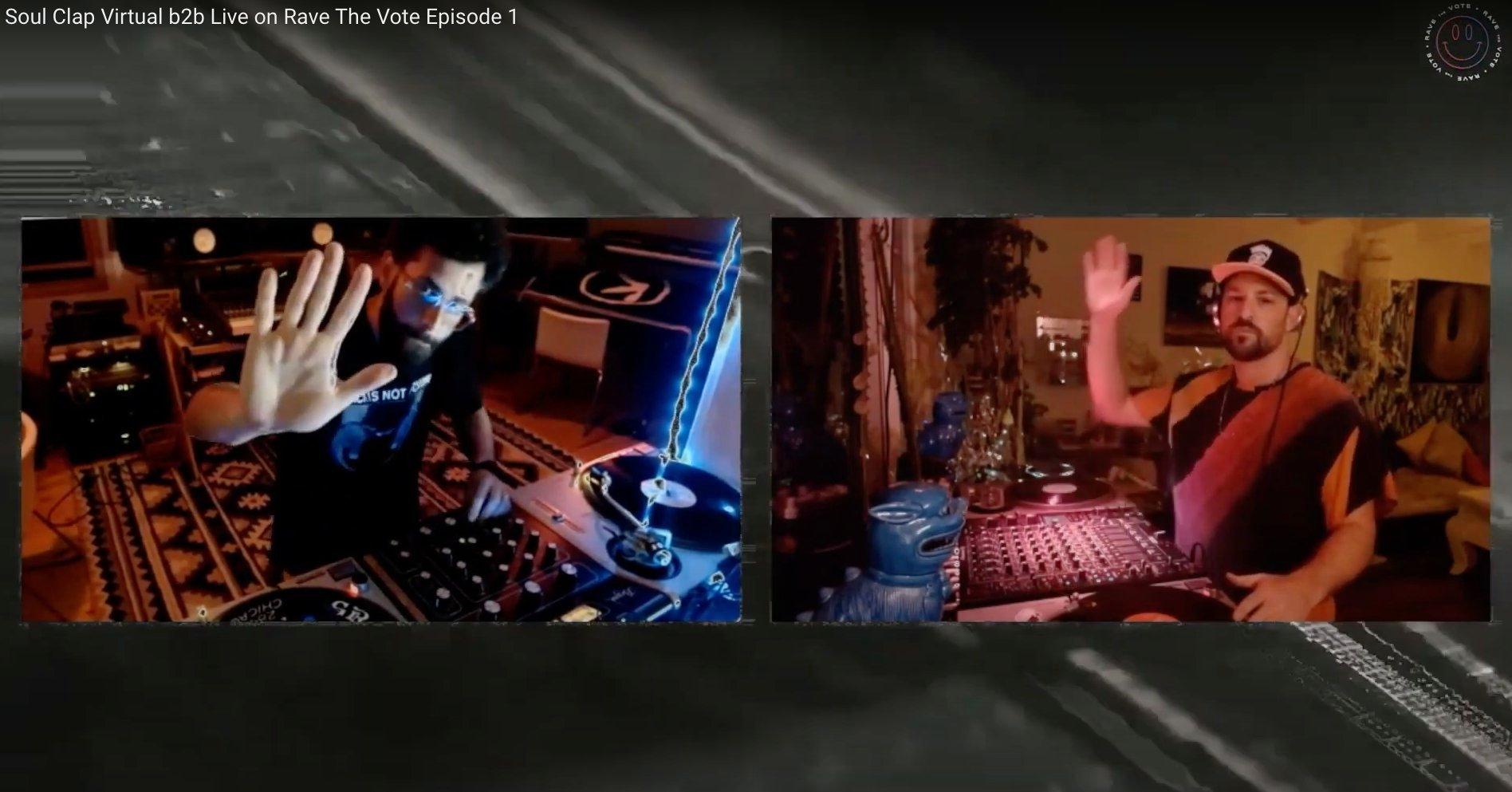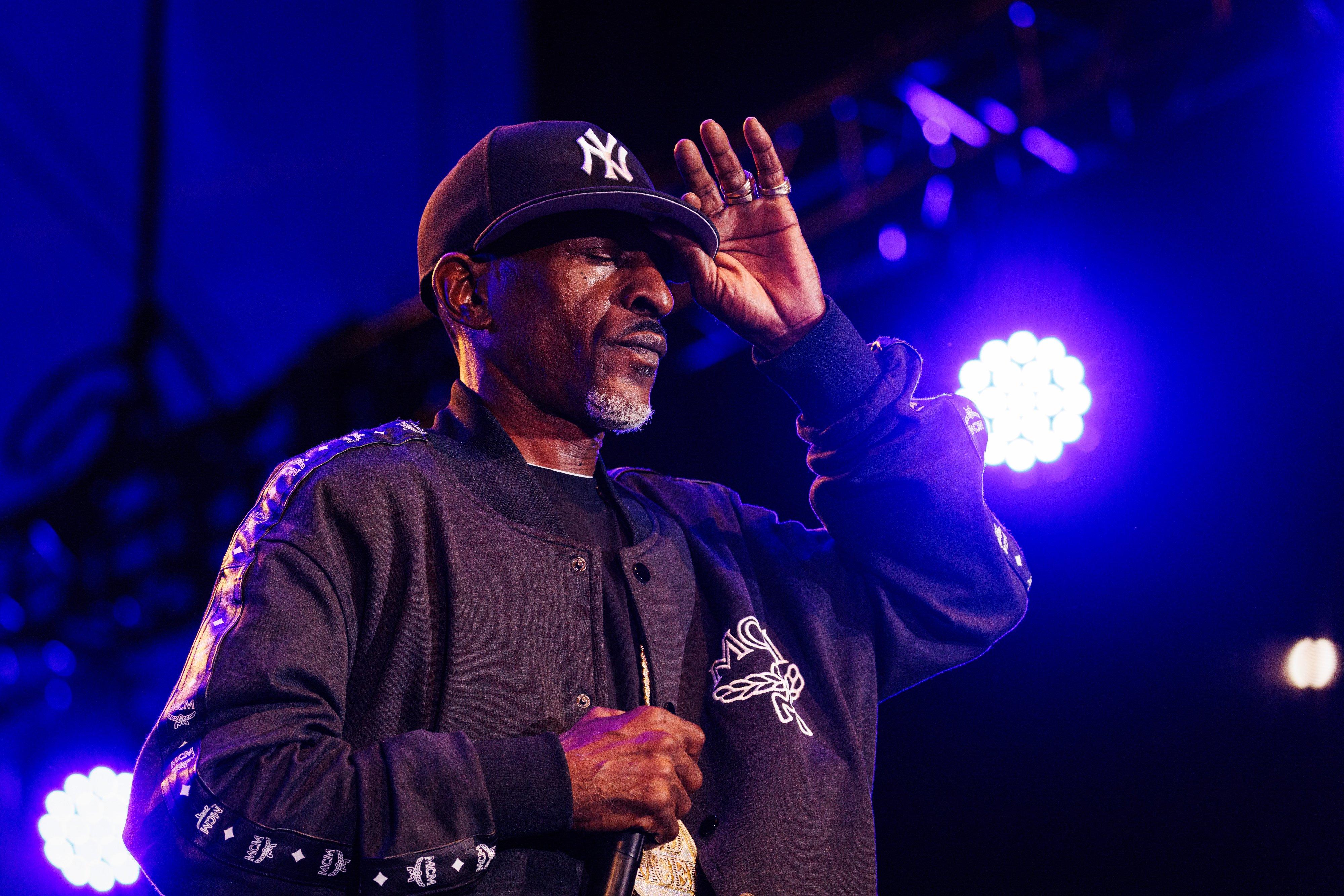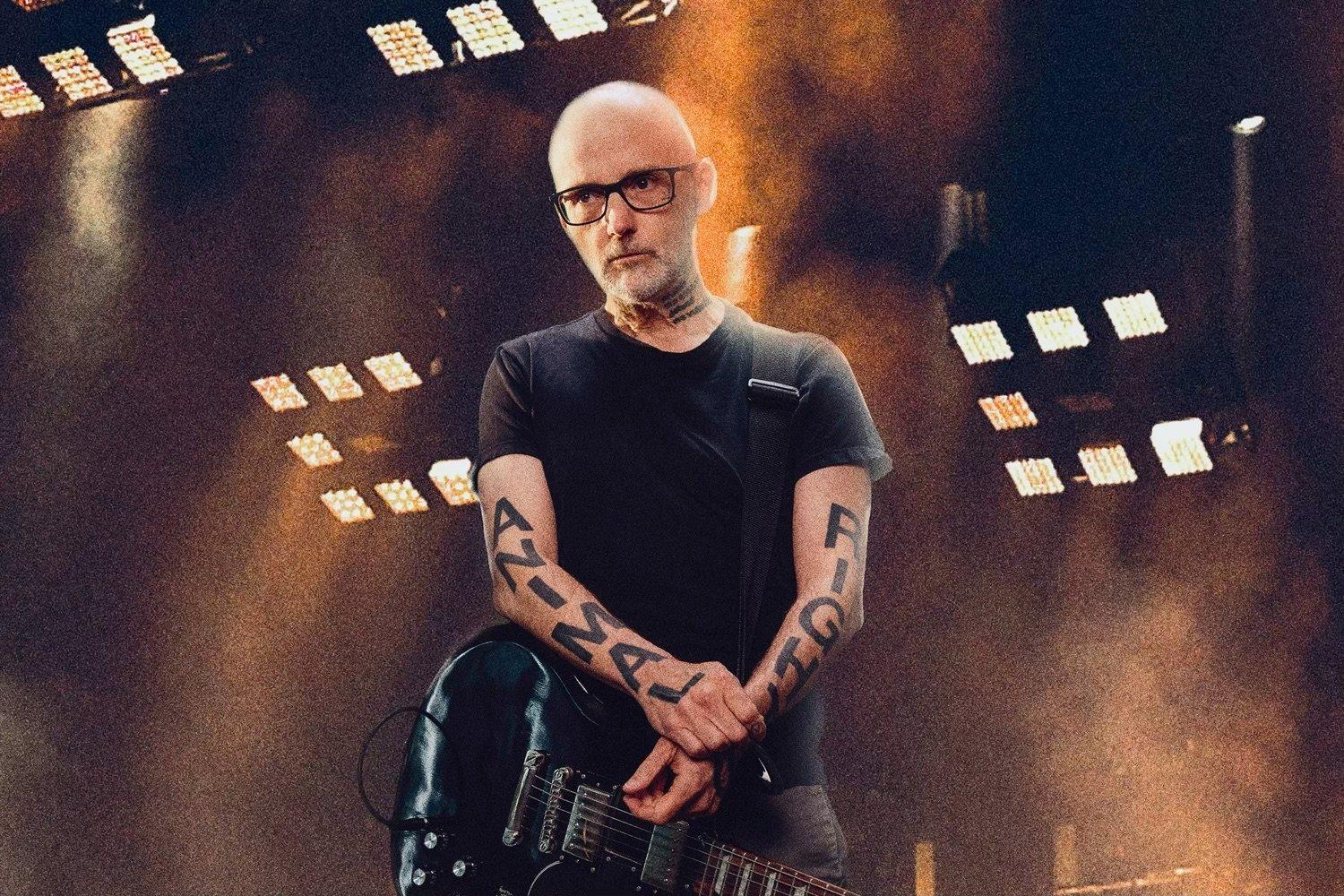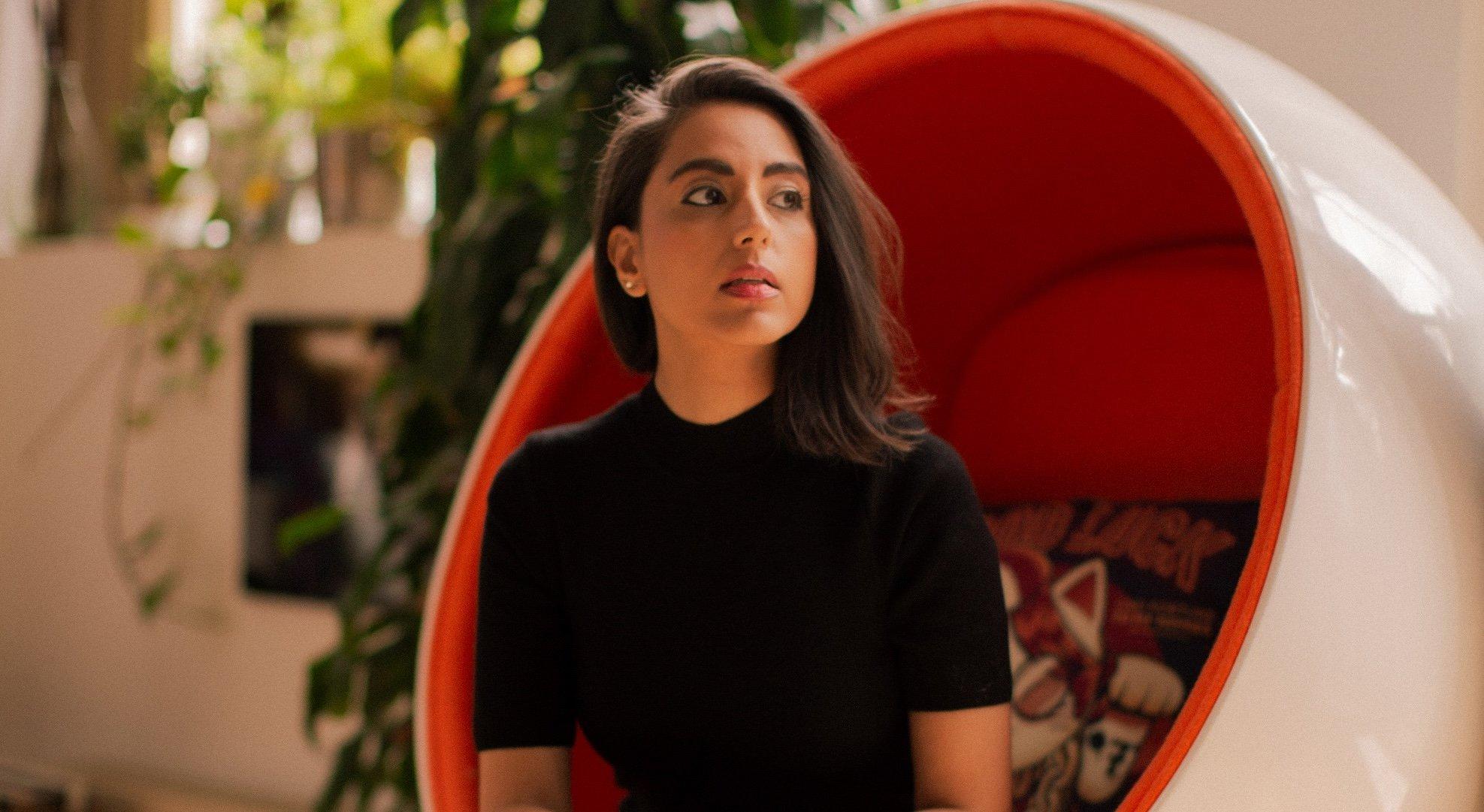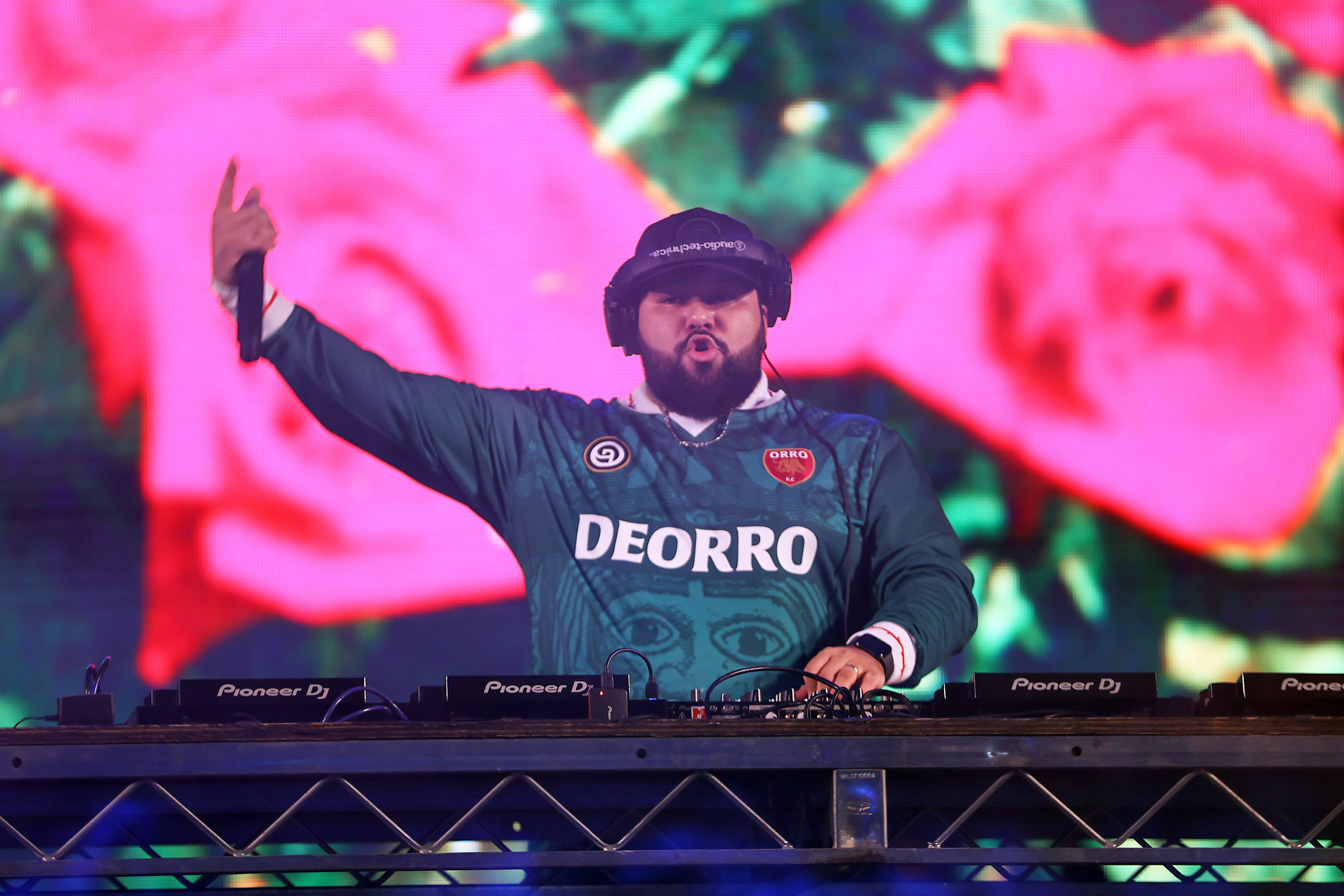With the 2020 Presidential Election less than three months away during an unprecedented pandemic, voter education and access is an urgent issue. Enter Rave The Vote, an online voter registration and education initiative ignited by four 12-hour virtual raves filled with educational segments and music from DJ Jazzy Jeff, DJ Pierre, Aluna, Marques Wyatt, TOKiMONSTA, SOFI TUKKER, Carl Craig, Seth Troxler, Desert Hearts, Louie Vega and many more names in the underground dance scene. Viewers are encouraged to register to vote, check their registration status and/or request an absentee ballot, all of which can be done on their website.
"Rave The Vote was created in an effort to mobilize the dance music community to register to vote and get to the polls. We know the wider community is both passionate and engaged, and encompasses a key demographic of voters that should not be overlooked. It's clear that we are all searching for ways to contribute to see significant change, to move towards the America we want to live in—and we can't do that if we're not exercising our right to vote. Ultimately, we aim to motivate viewers to use their collective voice to bring about change, and to educate them on the various ways to take action," Carré Orenstein, the executive producer explained over email.
Read: Entertainment One Senior VP Gina Miller On Advocating For Progress, Diversity, Equality & Inclusion
"We are in the most important election of our time and people are finally starting to pay attention! Electronic dance music and the culture that surrounds it was founded in a space where people came together to celebrate music and each other, it was and has always been a safe haven for many, myself included. It originated with Black roots and eventually became a space where people felt free to express themselves no matter who they were. Our goal here is to re-catalyze a space and community that has such powerful and strong roots of unity, love and freedom. To get them engaged, and to the polls! We have been blessed to welcome a diverse and beautiful collection of artists to represent Rave The Vote and the American dance music community. I have worked in this industry for the past 10 years and our lineup is far and away one of the most diverse I have ever seen in this culture on this level. It represents our country in its true heart and soul," Tadia Taylor, director of artist relations, added.
Supported by Orenstein, Taylor and a mighty team of fellow industry professionals, the ringleaders of the epic dance party for good are Eli Goldstein and Charlie Levine, a.k.a. Soul Clap, a funky-house vinyl-spinning DJ/producer duo formed in Boston in 2001. With their energetic DJ sets at clubs and festivals around the world, eclectic and talent-filled Soul Clap Records and overall joyful demeanor, the pair has been widely disseminating joy and great tunes and sharing the love with fellow funky artists for quite some time. Now, with Rave The Vote, they're helping ensure the dance community is civically engaged and present at the upcoming election.
We recently caught up with the beloved duo ahead of the second episode of Rave The Vote, which kicks off today, Fri., Aug. 14 at 12:00 p.m. PST/ 3:00 p.m. EST, serving up half a day of house music and voter education. The final two events will go down on Sept. 11 and Oct. 2. You can tune in on the LostResort Twitch and YouTube channels, and RSVP at Rave The Vote's website to stay looped in to all things related to getting out your vote. Make sure to read on to hear from Goldstein and Levine about the original vision for Rave The Vote (hint: It was IRL), why political engagement is so vital to democracy, being an ally and more.
Let's start with the spark that led to the creation of Rave the Vote. What was that and where did it lead?
Goldstein: Well, I mean, I think we both voted in every election since we were 18, so we've always been active in that kind of politics. But I think, as we've gotten a little older and further along in the music thing, we just had more of a desire to use our platform for positive change. We do a lot of work with an organization called DJs for Climate Action, which is all about educating DJs and getting us to use our platforms for education and positive change around climate.
This year obviously feels like a really, really important election and has for a while, for the last three years. Until someone's in the White House that acknowledges things like climate change, social justice, equality and these kinds of things, we can't really make much progress, or we can't make enough progress with all the other activism.
We had an idea to do a voter registration drive. It was originally going to be a real live tour around the Midwest, hitting swing states, going to colleges and clubs in Ohio, Michigan, Iowa, those kinds of places. We had been planning it since last year, but obviously we had to pivot quickly when everything got canceled and we realized that IRL events would not be happening.
Luckily our manager, Jonathan McDonald, got really excited and put together, with people from Infamous PR and others who put in so much effort to take this into a huge online livestream concept. It's been really exciting. And I think we are reaching a lot more people than we would have just with the IRL.
Levine: This is definitely one of Eli's ideas. He's very politically minded and tuned in to what's going on, whether it's climate action or social justice or race relations. Eli comes from a Cambridge political family. If it wasn't for Eli having this idea at the origin, I don't think we'd be where we are. That being said, we've been really fortunate to have the [dance music] community rally behind it, whether that's the DJs like The Blessed Madonna, Seth Troxler or Justin Martin, who are signed up way back when to do the real-life college tour with us and donate their time. And our manager Jonathan has been helping make it happen. And 2+2, our management and touring team that really got behind and it felt like it really had legs. And once Infamous got involved, forget about it, then it really branched out. We are now a whole community of dance and music professionals, artists and administrators that are blowing this thing up.
And to piggyback on what Eli said, we may have been able to reach X amount on college campuses, but the way that it grows exponentially through the web and social media, it's just so powerful. I think we're probably going to do a lot more good this way, as unfortunate as it is to not be able to be all buddied up in a tour van, somewhere out at some gas station in the Midwest, which would've been fun. We've only got to do some touring via bus, and that's all has been a laugh.
There's some really huge names involved, especially some of the OGs, like DJ Pierre, Kevin Saunderson/Inner City, Louie Vega. What has the outreach looked like? And what has the reaction of the dance community felt like so far?
Levine: I want to throw in that we got the nod from Dr. Cornel West that started our whole four-part Rave The Vote online series. So big shout out to Dr. West, who's a big supporter of the house and techno community, which was a total, delightful surprise. He's super dope. As for a lot of these names—including Louie and Kevin Saunderson—Eli and I have been fortunate enough over the years to build personal relationships with a fair amount of them. It's wonderful to call upon them.
Goldstein: I also would say this is kind of a testament to how connected the American, more-underground dance music scene is. It's a pretty diverse range of artists that we have built relationships with other years and were excited about getting involved with activism stuff. That list was a great starting point.
And everybody has really jumped at the opportunity. Some of these were personal connections, but a lot of the work was also done by the team. And it's cool. Each episode has a theme running through it. One of them is curated by Blessed Madonna. The first one was all our favorites. This one coming up next week is more of the kind of younger tech house scene. And then the last week is more of the beat, hip-hop oriented one. It's a testament to how diverse the underground is, but also how together and connected it is.
Rave On: Gene Farris Talks "Space Girl," Rave Safety & The Return Of The "Bedroom DJ"
The Rave the Vote livestreams are around 12 hours each, so what's going down during it and what viewers can expect? Also, what are you hoping happens after someone tunes in and engages with the livestream?
Goldstein: Well, obviously the most important piece of this is either registering, checking your status or requesting a mail in ballot, if that's available in your state. So the goal is to get people to go to RavetheVote.org, which they can do in advance of the streams too, it is 24/7. You can go to the website and do all this and also RSVP to the stream. By putting your information in, we'll be able to help provide support and guidance leading up to Election Day [Nov. 3] to help you come up with a plan to vote. Also, any outreach you can do to your friends and family to have them registering and voting is important. That's joining the movement, I would say.
That's the goal with the streams really, is to get as many people as possible involved via the site. It's funny, we had half a million unique viewers tune in to the first livestream and about 600 registrations. 600 registrations is great, but it's such a small percentage of the viewers. It's crazy. But that shows how important it is to have as big of a reach as possible and to get a lot of viewers with these livestreams. It's great to give people a call to action when they're enjoying music. Because there were a number of people who checked their registration or requested mail in ballots on top of the 600 who registered to vote. It's a great way to interact with people.
For the streams themselves, it's a really great, diverse range of DJs who are all super excited to be involved. Everyone's putting their best foot forward musically and also production-wise. At this point, all the DJs involved are pretty experienced with streaming. They know how to make a good looking and good sounding stream. More importantly, we have these really fun educational segments and PSAs from other artists, DJs and politicians in between the sets. So that's a fun way that allows for more of an interactive connection than just watching DJ livestreams. This is actually a way to be learning and also be involved with the initiative.
Levine: Yeah, the [Rave The Vote] producers did a really great job, they definitely deserve a bunch of hats off. They have been putting in real late hours to make it all come together. We can't wait to see what they come up with for these [three] next ones. Similarly, if you speak to other musicians or people through the GRAMMYs that feel passionate about this topic, we're always accepting more PSAs. This whole thing does not end with dance music DJs. This should be for the masses.
Listen: Jayda G Talks New EP, Promoting Diversity In Dance Music & Sharing Joy
Definitely, let's put it out there! So, as frustrating as it is, there are still people out there that feel either indifferent about voting, or just over it because they voted in 2016 and that guy still got into office.
Goldstein: That guy. [Laughs.]
What do you say to people who still say "It doesn't really change anything" or "Why does it matter?"
Goldstein: So there's multiple layers to this. A big part of this initiative is this educational piece of it. I do feel like we've been fed propaganda for most of our adult lives that our votes don't matter either, one, because the state we live in either always goes Republican or always goes Democrat. Two, because both the parties are the same. I feel like those are the big two.
And I guess three would be that the whole system is broken. That the two-party system doesn't work and we're not really represented anyway. In response to that, I say, one, that is not taking into account how important local elections are, both in our towns and also on a state level. I live in New York state, and I've seen how, the moment that we got a super majority after the 2018 election, the amount of bills that were passed for things that I care about was wild. From climate change stuff to worker protections, to healthcare, to all these things that at the state level can have a huge impact on your life and the world around you.
And then the local level of your community, this is where you actually can have the biggest impact because you actually can get to know your local representatives. These are all people who live in your neighborhood or near you, and you can connect with either them or their aides closely. These are people who are making the changes in your town or your county that impact you directly. For nightlife specifically, that's noise ordinances and liquor laws and all these kinds of things that affect where clubs can be, how late they can be open and more. So young people getting involved in that really can have a huge impact, because then we can advocate for what we care about, nightlife and culture and all that stuff.
Then you have district attorneys and attorney generals of the states who have a huge impact on what's going on around police brutality and social and racial justice. So these are really important positions as well that you're voting for in a local election. This is all one big part of it. Just to say that our federal system is broken, it's overlooking how much of an impact we can have on these other levels.
Let's look at our federal system and jog everybody's memory. There are three branches of our federal government. I feel we learned this in school, but either we don't pay attention or it just goes right over our heads, but they are so important. The impact of the three branches of government means that the president doesn't make all the final decisions, right? You have Congress, which passes all the bills and actually makes a lot of the legislation that's impacting us and that we care about. But the most important piece of all this is the Supreme Court and the federal courts. When somebody either retires or dies on the Supreme Court or who's a judge in a federal court, the president at the time, appoints a Supreme Court justice or federal judge, who serves for the rest of their life or for as long as they want to.
This has a huge impact on generations. So now, if the president is appointing somebody that aligns with their values and ideals, that person is going to be representing that for the rest of their time in the courts. This administration has gone out of their way, they have a whole strategy to really make as big of an impact as possible on the federal courts. They've appointed over 800 federal court justices, which is almost twice as many as [Barack] Obama appointed in his eight years. Basically, they asked and pressured older conservative judges to step down so they could appoint younger judges to take their places so they can hold the roles for longer.
They have such a huge impact on the little decisions that are made every day or a few times a year, that then lead to things like abortion being legalized or made illegal, or segregation and desegregation, civil rights, prosecuting police, voter rights, all these things that we care about, the Supreme Court makes decisions that impact it.
That's crazy. That just blew my mind.
Levine: It's a lot.
Goldstein: It's a long answer. But the basic part of it is, look, we've been fed propaganda that our vote doesn't matter. Yes, the system is not perfect and yes, politicians are not perfect, but this is what we have. And if we don't participate, we can't make any changes.
Levine: I mean, with the pieces of the puzzle that are intangible for citizens, like the electoral college, gerrymandering, voter suppression, all this stuff, there's things you can do and there's things you can't do. But if you are not even registered to vote, if you're not even attempting, if you are not participating, then it's guaranteed there is nothing you can do.
To your many mic drop points, Eli, how do you educate yourself on state and local candidates and measures? Sometimes the language on ballots can be sort of misleading and can also just jargon-y. What are some ways that you educate yourself on the issues, or places that you point people to that are don't even know where to start?
Goldstein: Well, I mean, this is complicated. Most of the places that you get information are partisan. There's no easy way to get all the information. It's not just right there. Maybe it should be, I don't know how they could necessarily do that. Some cities and states send out mail that has information about all the initiatives and candidates in your city. Not all cities do that. When they do, it's a great way to encourage participation and understanding from everybody.
But here's the thing, if you really care about this stuff—this goes back to the last question. I heard this in a Noam Chomsky livestream recently, politics is actively participating in things that you care about every day. That's what politics really is. It's not easy. It's not sitting back. To really get involved and really make a difference with this stuff, you have to put a little effort in. Maybe it's not every day for you, maybe you don't have that time. Maybe you're doing other work that's important. Maybe you're just trying to survive. And that's totally understandable. But putting in that 30 minutes before the election to find this information and be educated can go a long way. There are places you can look. One is your local newspaper.
Almost every city or county has a local newspaper that shares this information on their website. And then another way is our mostly two-party system. There are a number of smaller parties in states that are under the other parties. So here in New York, there's the Working Families Party, which supports workers' rights and a number of other issues that I care about. They endorse candidates or send candidates that are supported by that party, and then have a voice in their policy. This is something that's often overlooked, these smaller organizations run by citizens like you and me who have an influence and impact by endorsing candidates.
So maybe you believe in unions and you see what the local union is endorsing. Maybe you believe in climate justice, you're an environmentalist, and you look for whatever the Green Party is endorsing. These are all a number of ways you can look for value-based guidance on this stuff. It is amazing how hard it is to find nonpartisan information on the internet. But if you go in with the idea that it's going to be partisan and you just look for the party that you agree with, that can do the work for you.
That's such a good point. Also, certain nonprofits will share what candidates that align with their values, like the Human Rights Campaign will endorse candidates that support LGBTQ+ issues. You can always cross reference these lists too. I guess now most of us are hopefully voting by mail, so you have more time to sit with the ballot.
Goldstein: Right? But the other thing is you can be at the polls and take out your phone and do the research right there. It's not like you're not allowed to go on your phone and use the internet, you're taking a test. You can sit in there for 30 minutes if you want. I mean, obviously I wouldn't encourage that because there's other people who want to vote and often lines can get long. But if you need to take the time, take the time and make that educated vote. It's better to do that.
Levine: I've got a question. If you order the mail-in ballot, are you then obligated to vote that way, or can you still go to the polls?
Goldstein: You can still go to the polls. Actually, that's a good question. I may be wrong.
I think it depends on the state or county. In Los Angeles county, it is default vote by mail, so everyone registered gets a vote by mail ballot, which you can also drop off at a polling location or bring it in and basically forfeit your vote by mail. Of course it's super important, especially now, the ballots show up to your current address. [If you lose or forget your absentee ballot, some counties let you vote with a provisional one. Check your local county's website for more info.]
Goldstein: This is why it's so important to check your status beforehand and look at the policies of your state, what do you have to bring to prove you're eligible to vote and all these things. This is why we advocate for making it as easy as possible to vote, so people are not intimidated and they can exercise their right without feeling like they have to jump through hoops. I know our so-called President likes to say that voting by mail is rigged, but there are statistics proving it's not fraudulent.
Levine: [Laughs.] Everything's rigged with this guy.
Goldstein: States like Utah have universal mail-in voting, and Utah's a Republican state. It's not like mail-in voting makes Democrats win where Republicans were winning before. It's still pretty even, none of what he's saying about it is factual. It's important to keep putting that out there that mail-in ballots actually are as secure, if not more secure, than voting in person. We've seen that voting in person has potential to be hacked.
Levine: Absolutely. Or it can just malfunction.
To your point, the President has been doing a lot to try to suppress voting, by attempting to defund the USPS, which delivers and collects the ballots, making those erroneous claims about voting by mail, and now trying to postpone the election. What can we do to make sure this election is fair?
Goldstein: I mean, it's so hard to be nonpartisan with this stuff. My first answer, which is totally partisan, is win by a f***ing landslide. If everybody goes out and votes, it doesn't matter how corrupt, how broken the system is and how much they try to suppress voters and hack the vote in swing states, if the win is so overwhelming it doesn't matter. There's nothing they can do. It would just be too obvious for them to hack it. So, that's one answer.
The other answers are you can volunteer or you can sign up to work at the polls. You can literally get paid to be a pollster. There's actually a shortage of people this year because it's always older folks and a lot of them are high risk for COVID-19. So young people going and working in the polls and seeing exactly what's happening is going to be our most valuable tool.
There's a great website called Vote Save America, they have an initiative called Every Last Vote. There, you can get resources, including a great FAQ about voting by mail. There's also a sign up for being a poll worker and a sign up to volunteer to go to the polls and make sure everything is working the way it's supposed to. I will say that it's also really important volunteering because the Republican party has established a program called Protect the Vote, which means they're going to be sending monitors to polling places and challenging voters deemed "suspicious." So it's really important that we're out there making sure that people are allowed to vote. Every Last Vote is a great resource for doing that.
And, with any of this, the only way you can feel like it's actually going the fair way is by participating as much as you can, educating yourself, voting, volunteering, working in the polls, getting involved with organizations that do work that you believe in. This is how we stand up and take away this feeling of not having power. We take back the power for ourselves.
Related: Amid Black Lives Matter Conversations, Black Latinx Artists Urge Non-Black Latinx To Do Better
You've been using your platforms to point people to different actions they can take on important social justice issues, including standing in solidarity with the Black community and against police brutality. What do you believe it means to be a true ally, and how do you continue to educate yourselves and stay informed?
Goldstein: I think we've learned so much over these last few months. I always thought of myself as an ally, but I think learning what that really means has been a really important process over this time and, like anything, it's always a process. And so, a big part of that is obviously educating yourself. One great way of doing that is by following accounts for organizations like Black Lives Matter or Color of Change on Instagram, or some of the smaller local organizations, like local chapters of Black Lives Matter, and following activists that you believe in. That's a great start, they're posting information.
And then just listening. If you ever get in conversation about this stuff, ask questions and just listen. That does not mean just hitting up your Black friends and being "Hey, what do I do about this?" There's plenty of resources online to figure that shit out yourself. That also doesn't mean you shouldn't check in with your Black friends and have conversations and say hello. Let them know you're here to support them, and if they need anything to reach out.
And then also donating to organizations. I've been talking about voter suppression and voting rights—there's a couple of great organizations you can support. One is called Voting While Black, which is advocating for voting rights for Black and brown folks. And then there's also Fair Fight, started by Stacey Abrams, which is doing work to make sure everybody has a right to vote.
it's also saying Black Lives Matter, living Black Lives Matter and making sure that's part of what you're thinking about every day. And part of that too is looking at your privilege, looking at how your Whiteness got you what you have and being real about that with yourself. That's another important thing, figuring out how you're going to try to use that, what you've accomplished, to help lift up other people who don't have that privilege.
Levine: I would just add to that, I know it's difficult, but when friends or family members say things or act in a way that could be perceived as a micro-aggression or as flat-out racist, to hold them accountable and point out that this is inappropriate. If you allow some of this behavior, it's dangerous. It can be difficult, especially when it's friends and family, but making sure they are educated as well is important. it's also important to check in with your Black friends. I think communication and conversation is at the heart of what will make a big change.
Goldstein: This is what we've been trying to do with the "Schmoozing" show, to have these hard conversations. I agree it's so important to see where people's heads are at, see what they believe in, where they're coming from and how they want you to make an impact and be an ally.
Levine: The long conversation format is really is wonderful. It allows you to ask the difficult questions and it's okay to get it wrong. It's okay to learn something from a conversation. Maybe people are scared of that, but that's a big part of the growth, I think.
DJ JP Lost Pop Smoke, Entered A Pandemic & Is Surviving Both Through Reinvention

